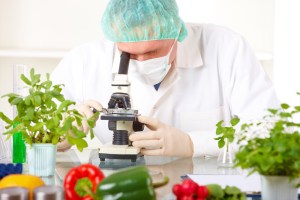COVID-19 Rapid Response funding opportunities are being made available through the U.S. Department of Agriculture’s National Institute of Food and Agriculture (USDA-NIFA). The agency has awarded nearly $14 million in an effort to keep research and innovation moving forward amidst the pandemic. The grant projects are aimed at addressing the most significant challenges facing university researchers, small businesses, and consumers. More projects are expected to be funded in the coming months.
“It was quickly evident at the onset of the pandemic that the food supply, agricultural systems, families and education – key focus areas for USDA and our partners – would be greatly impacted by all the changes facing our society,” USDA-NIFA Acting Director Parag Chitnis said in a press release. “USDA-NIFA is uniquely positioned to help fund rapid response research, outreach and education efforts, while continuing to support our base research, Extension and 4-H youth development programs that are in place at all times to respond to producer and consumer needs, large and small, across the nation.”
The COVID-19 Rapid Response grants have been made possible through two different programs. Nearly $13 million has been awarded through the Agricultural and Food Research Initiative (AFRI) for 17 different grant projects. Another $1.3 million has been made available for 14 projects through the Small Business Innovation Research Program. The funding support is designed to advance the development of agricultural research, education, and small business innovation that addresses the challenges created by COVID-19.
“In emergencies like this, trusted resources and expertise are available to Americans, particularly in the rural areas, through local Extension offices,” Chitnis said. “Extension agents have personal connections with people and communities.”
The COVID-19 Rapid Response to Novel Coronavirus Impacts Across Food and Agricultural Systems was added as an area of focus to the AFRI program. The purpose is to provide projects that address critical areas of need within the food supply chain and the stakeholder community with up to $1 million in support.











